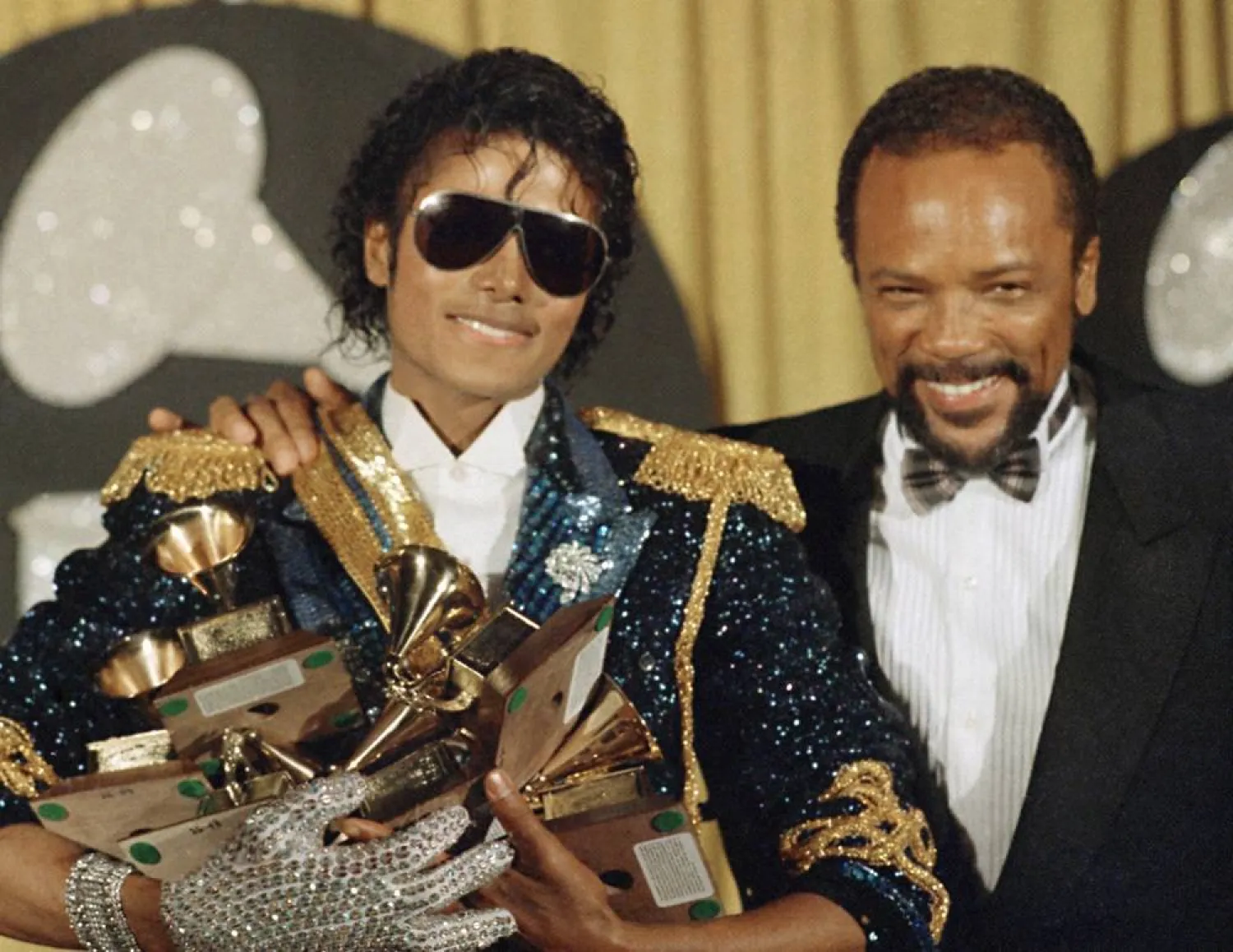Few artists have legacies so mammoth their very name could be considered synonymous with the music industry, but then again, most musicians are not the prodigious producer Quincy Jones.
The larger-than-life figure died Sunday night at his Los Angeles home, surrounded by his family. He was 91 and scheduled to receive an honorary Academy Award later this month.
Across his career, the 28-time Grammy Award winning Jones worked with everyone from Ray Charles and Frank Sinatra to Michael Jackson with hundreds in-between. The best way to celebrate his legacy, of course, is to listen to the music he made.
1963: Ella Fitzgerald and Count Basie's orchestra, “Honeysuckle Rose”
Those looking to kickstart their Jones listening journey at the very beginning of his career could do so with “Liza,” from his first album, “Jazz Abroad,” a joint release with Roy Haynes. For everyone else, look to his arrangements on 1963's “Ella and Basie!,” an album by Fitzgerald with Count Basie's orchestra. Moving from just vocals and bass before building into its own grandness — not to mention, a delightful scat solo from Fitzgerald — “Honeysuckle Rose” from the album is an exemplar of Jones' jazz brilliance.
1963: Lesley Gore, “It’s My Party”
Teenage heartbreak met its match on Lesley Gore's “It's My Party,” recorded when its pop singer was still in her own adolescence. Jones produced the record, with its addictive melodies, percussion and cheerful horn section — emotionally and diametrically opposed to its narrative tale of a girl getting dumped by her boyfriend for her best friend on her birthday. You'd cry, too, if it happened to you.
1964: Frank Sinatra, “Fly Me to the Moon”
Jones' legacy is defined by an idiosyncratic ability to master various American musical forms with an apparent ease. That is the case of this canonized cover by Frank Sinatra, “Fly Me to the Moon,” from Sinatra's 1964 album, “It Might as Well Be Swing,” arranged by Jones. The producer set the song to a punchy, swinging rhythm and wistful flute, and the rest is history. You can also thank Jones for “The Best Is Yet to Come.”
1967: Ray Charles, “In the Heat of the Night”
Jones scored the 1967 film “In the Heat of the Night,” which includes its R&B-gospel title track, “In the Heat of the Night,” performed by his good friend Ray Charles. It is soul committed to wax, amplified by the inclusion of a lusty tenor sax solo.
1979: Michael Jackson, “Don’t Stop 'Til You Get Enough”
Perhaps Jones' best-known production partnership is the one he had with Michael Jackson, working with the King of Pop on his culture-shifting albums, 1979's “Off the Wall," 1982's “Thriller” and 1987's “Bad.” The pair met while working on the 1978 movie “The Wiz" — Jones worked on its soundtrack, and Jackson was its star. “Don't Stop ‘Til You Get Enough," with its inventive disco-funk, ambitious production and Jackson's signature falsetto set the stage for the massive career to come.
1981: Quincy Jones, “Just Once”
Put it in the pantheon of great piano ballads: On Jones' 1981 album “The Dude,” James Ingram takes over lead vocal duties for “Just Once,” the big-hearted and bigger-feelings track.
1982: Michael Jackson, “Billie Jean”
What songs are more immediately recognizable? An elongated drum and bass lick introduce “Billie Jean,” one of the great genre-averse pop songs of all time, from Jackson's record-breaking “Thriller" album. Here, Jones' production is post-disco, but still funky, still prescient. And time tells the greatest tale: “Thriller” sold more than 20 million copies in 1983 alone and has contended with the Eagles’ “Greatest Hits 1971-1975” among others as the best-selling album of all time.
1982: Donna Summer, “Love Is in Control (Finger on the Trigger)”
And now for something completely different: In 1982, Jones worked with Donna Summer on her self-titled album, a dance-forward record that includes the synth-y pop single “Love Is in Control (Finger on the Trigger)," which earned a Grammy nomination for best R&B vocal performance, female.
1985: USA for Africa, “We Are the World”
Nearly four decades ago, some of the biggest stars on the planet — Jackson, Bob Dylan, Tina Turner, Dionne Warwick, Billy Joel, Stevie Wonder, Willie Nelson and Bruce Springsteen among them — came together for an all-night recording session. The result was “We Are the World,” a pop superhit overseen by Jones, the 1985 charity record for famine relief in Africa.
Lionel Richie, who co-wrote “We Are the World” and was among the featured singers, would call Jones “the master orchestrator.”
1989: Quincy Jones with Ray Charles and Chaka Khan, “I'll Be Good to You”
Back in 1976, Jones produced the Brothers Johnson's R&B hit, “I'll Be Good to You,” and then re-recorded the track with Ray Charles and Chaka Khan — an ebullient number with contemporary production, completely transforming the classic.









